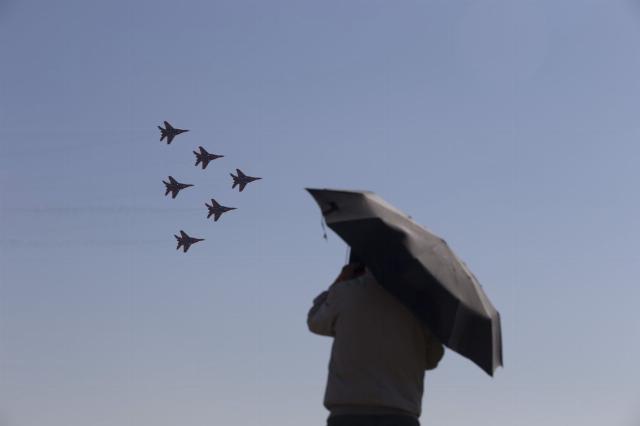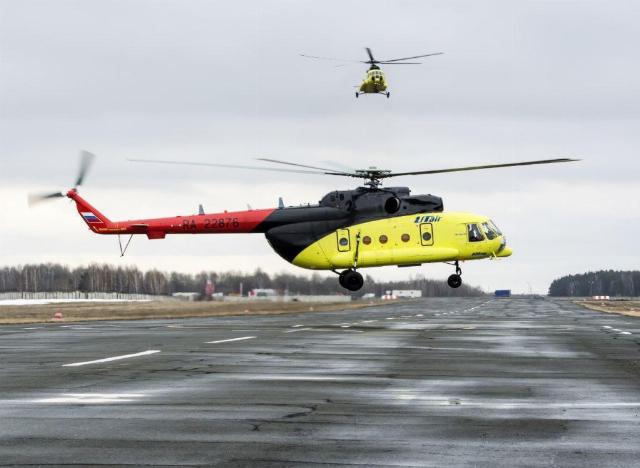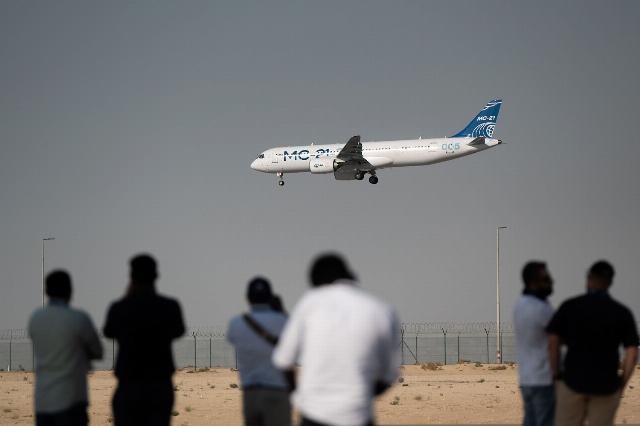On ensuring high-quality and uninterrupted communication between ground services and aircraft, and what role do Rostec State Corporation companies play in this?
Starting in 2022, global global providers of ACARS— an addressable reporting system for aviation communications, have stopped providing their services in Russia. Meanwhile, this air—to-ground system plays a key role in ensuring flight safety. It allows pilots and air traffic controllers to exchange operational information, monitor flight parameters and prevent emergency situations.
Infocom-Avia and Azimut companies within Rostec are engaged in import substitution of the system.
We understand how the aviation communication system works and works.
"I see, I hear, I control"
This is an unshakable and most important rule of the flight director, the air traffic controller, is the key to aviation safety. All actions of the aircraft crews in the air are under constant supervision and control of ground specialists of the ATC — air traffic Control service.
Currently, all ATC bodies are part of the Unified Air Traffic Management System, abbreviated as EC ATS. The flight control of an aircraft from the ground is possible only with uninterrupted and stable communication with it, as well as with the regular operation of radar monitoring and air traffic control devices.
High-quality and uninterrupted communication of the earth with aircraft in the air that perform scheduled flights is one of the most important conditions for flight safety. The most important information for flight safety today, however, as before, is transmitted to the aircraft by the ground dispatcher via a radio channel, with a mandatory report from the aircraft crew that he has accepted this information.
 |
| Aviation of the Russian Federation. |
| Source: Rostec State Corporation Press Service |
This principle of operation is fundamental and unshakable in the air traffic control system. At the same time, in addition to important and urgent information, on which flight safety directly depends, there is also a whole array of data that is necessary for the daily activities of civil and commercial aviation. This so-called basic information includes information about the altitude, speed, course of the aircraft, remaining fuel, special flight conditions, restrictions, technical condition of the aircraft, meteorological conditions at various stages of the flight. In fact, this is a huge amount of diverse information, which, in addition, changes rapidly over time, which the specialist of the ATC control service must quickly accept, analyze and, based on this, issue correct and competent commands and recommendations to the aircraft crew.
Air traffic is growing
Previously, the ground dispatcher received all the necessary information by radio and, based on the data received, issued appropriate recommendations or commands to the aircraft crew. But everything changed dramatically in the 1950s. With the advent of the jet engine in aviation, speeds have increased, flight levels have changed, tensions on air routes have increased, cargo and passenger traffic have increased, and the number of aircraft has increased significantly.
The burden on the Department of Internal Affairs has increased significantly. The airport network has increased, and the staff of ground flight support services has grown. The aircraft themselves have become much more comfortable, more economical, increased speeds and carrying capacity, which has led to a significant increase in complexity and cost of aviation equipment. This, in turn, required the expansion of the staff of relevant specialists engaged in the field of ground maintenance of aircraft, their systems and individual units. In this situation, high technology has come to the aid of aviation controllers and ground services.
Without going into deep details, we note that the introduction of automated air traffic control systems, which are also engaged in tracking and transmitting data on the technical condition of aircraft, collecting and analyzing meteorological, navigation and navigation information, was started back in the Soviet Aeroflot in the 1970s and 80s. The collapse of the USSR influenced not only the development of domestic civil aircraft, but also the development of Russian control systems, which were replaced by foreign solutions.
Foreign-made aircraft occupied the vast majority of Russian airlines. Along with these "foreign cars", various foreign companies have entered our country, providing technical, service and information support.
SMS between heaven and earth
One of these services, which until recently was used by domestic airlines, was the Airborne Communications Addressing and Reporting System (ACARS, Airborne Communications Addressing and Reporting System), provided by foreign commercial providers: the Swiss SITA and the American ARINC. This system allows users to transmit/receive real-time data on the technical condition of the aircraft, the main parameters and characteristics of its units in flight, and exchanges meteorological, navigation and navigation information, operational plans, and other special information necessary for flight safety with the aircraft.
 |
| UTair helicopters. |
| Source: Russian Helicopters |
The receipt of this data on board the aircraft makes it possible to adjust flight parameters, which saves fuel, flight time and engine life. In turn, the information about the technical parameters of the work that comes from the aircraft to the ground allows you to prepare, promptly organize and carry out maintenance immediately after landing, which will allow faster and better pre-flight preparation of the machine, thereby reducing the downtime of the aircraft on the ground. Also, you must agree, an important factor is a lot of savings.
For the ACARS system to work according to a foreign model, a network of radio stations in our country was needed, but the providers preferred to place the centers themselves, where incoming and outgoing messages were processed, at home. Thus, foreign developers and owners of the systems had a lever of pressure that directly affected flight safety. With the beginning of the sanctions in 2022, the ACARS system became inaccessible to Russian airlines with all the ensuing consequences.
ACARS in Russian
But, as they say, there is no silver lining. Harsh measures on the part of foreign companies were an incentive to create their own, domestic system. Today, in 2025, we can confidently state that domestic specialists in this field have successfully solved the difficult task of replacing a foreign system with a fully domestic one, and solved it as soon as possible. Russia now has its own independent ACARS system, which is in no way inferior to foreign ones.
The system was developed by specialists from companies belonging to Rostec State Corporation. Infocom Avia is a Russian developer of solutions and operator of information services in the field of aviation, and the Azimut manufacturing company, which develops, manufactures and supplies communications, navigation, landing, surveillance, and air traffic control automation equipment to airlines and enterprises in the field of civil aviation. ATC centers.
By the efforts of domestic specialists, special equipment was developed, tested and put into operation, which ensures stable digital communication of the aircraft with the EU ATM ground station. The number of airports where domestic ACARS equipment is currently installed, either replacing imported ones or newly installed ones, continues to grow steadily. According to experts, in order to ensure uninterrupted operation of the system throughout our country in the interests of all domestic airlines, it is necessary to install 105 ground stations. One of the first ground stations was installed at Sheremetyevo Airport.
In addition to the installation of ground stations, the Russian processing center of the ACARS system has been put into operation, the center into which all information flows and where its processing and corresponding analysis are carried out, on the basis of which recommendations are issued and decisions are made. Currently, Aeroflot and S7 airlines are already connected to it, and a number of other domestic air carriers are in the process of connecting.
The domestic system provides an operational, continuous, noise-resistant exchange of scheduled, flight, meteorological, navigation and other special information necessary to ensure flight safety for aircraft crews and ground controllers of the EU ATM. In addition, the necessary information about the operation of engines, fuel system, life support systems, the condition of special aviation equipment, as well as other important components and assemblies of the aircraft is transmitted to the ground.
The creators of the system are already taking steps to further improve it and increase its functionality. In the near future, with the help of the domestic ACARS system, it will be possible to receive digital meteorological reports on the requested airfield on board the aircraft, so that the crew will be able to receive not only data on the actual weather for a specific observation period, but also a forecast of weather conditions for the period of interest. This information is extremely necessary for the aircraft commander (FAC) to make the right decision in a difficult situation. There are two options in this case: either to land in difficult weather conditions, or to leave for an alternate airfield. A timely weather forecast transmitted on board the aircraft for the planned landing airfield and alternate airfields will facilitate the adoption of a competent, correct decision by the crew commander.
It is worth noting that until now, the actual weather and its forecast for airfields were brought to the FAC by the ground dispatcher via radio, under dictation, which took much-needed time and, as often happens in extreme and difficult situations, was not always correctly "absorbed" by the crew commander. In the case of digital transmission, the forecast is transmitted much faster and will, as they say, always be in front of the eyes of the crew commander. In addition, the aircraft crew will be able to receive digital permission for departure from the control service, and it is also being developed to transmit dispatching information to the aircraft crew through digital messages.
The development of new types, subsystems and functions of the domestic ACARS system in the interests of flight safety and improving the efficiency of air transport continues. This means that Russian planes should be in touch!

